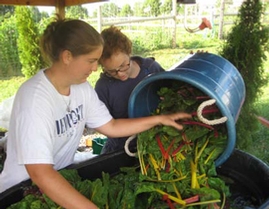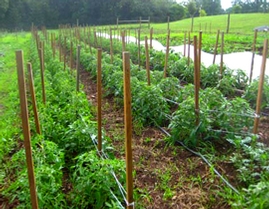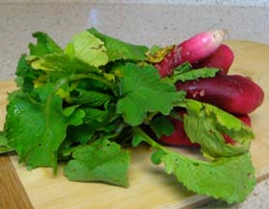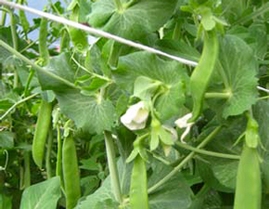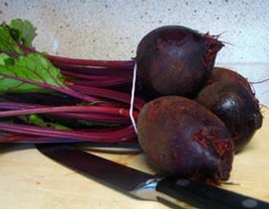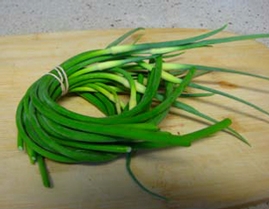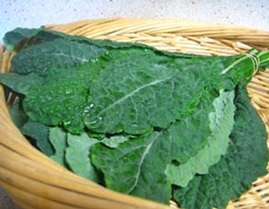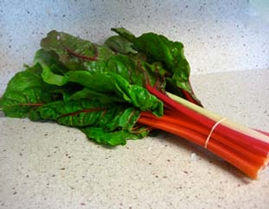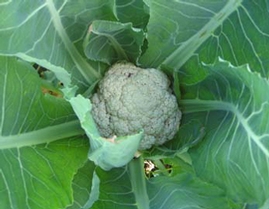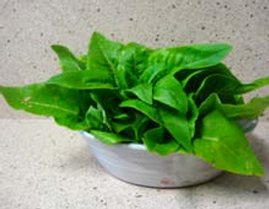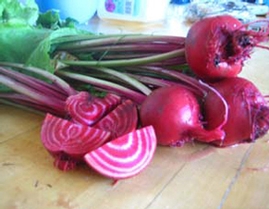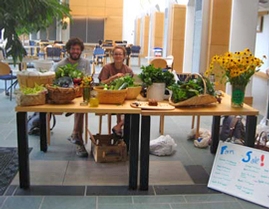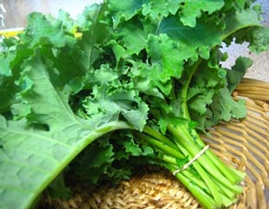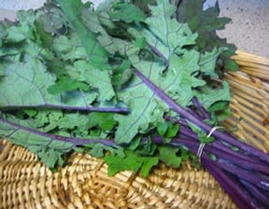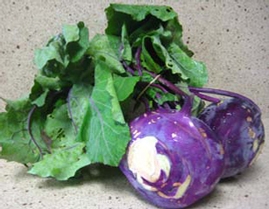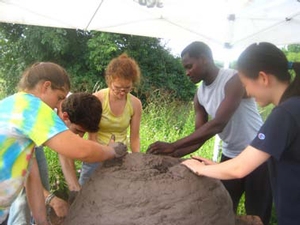Ideas Beyond Farming
- Established Farm Projects
- Future Farm Dreams
Established Farm Projects
Clinton Early Learning Center Plot
At the very end of the 2010 summer, the children from the Clinton Early Learning center trekked over to the farm, where they got a brief tour, and planted carrots and beans. This was the only time they were able to come, but enjoyed it immensely, and they wish to do more with HCCF in the future. Denise Jaskolka, the director of the Learning Center was enthusiastic about the idea of the children having their own plot in which they could plant easy vegetables. They would visit every month or so to see their plot, harvest, and do simple activities. Another idea discussed was helping the Learning Center to start a garden on site so it would be more easily accessible. Maintaining this connection is a good way to strengthen ties with the Hamilton College community and to educate future generations about the environment.
Elementary School Visits
The West Canada Valley Elementary School Garden Club visited the HCCF in the summer of 2010 upon the invitation of Frank Sciacca. They toured the garden, tried some produce, and learned about the beehives from Nancy Thompson. This visit was the only visit by a school group, but Manique Talai-Murray (a student volunteer) began discussions with Steven Marcus, the principle of the Clinton Elementary School, about HCCF working with the kids. Working with the Clinton schools, and other local schools is a beneficial form of community outreach, and will involve the surrounding area in the garden, and open up the possibility of students interested in education becoming involved in the HCCF.
Supplying Produce for Adirondack Adventure
In the past, HCCF has supplied onions and peppers for the Adirondack Adventure pre-orientation program. Andrew Jillings will probably ask about this again, but he can be reminded if he does not. Hamilton Serves- For the past two years, orientation groups have come down to the farm on Hamilton Serves day. This is a great way to get some large projects done, as well as introducing some new freshman to the farm. Usually around 20 students is an appropriate number to have come down, but that number depends on what they will be doings. Also, it can be beneficial to request Orientation Leaders who are somewhat familiar with the farm or gardening, if you know of any. Contact Amy James in mid-summer to organize this.
Hamilton Serves
For the past two years, orientation groups have come down to the farm on Hamilton Serves day. This is a great way to get some large projects done, as well as introducing some new freshman to the farm. Usually around 20 students is an appropriate number to have come down, but that number depends on what they will be doings. Also, it can be beneficial to request Orientation Leaders who are somewhat familiar with the farm or gardening, if you know of any. Contact Amy James in mid-summer to organize this.
Volunteer Opportunities for Sports Teams and other organizations
There are many organizations on campus that do community service, and the farm is a great place for this to happen. In the past, the women’s cross country team has come down to the farm, and other groups may be interested. College Farm Field Trip- In July 2010, the interns went on a farm field trip, visiting the community farms at Yale University, Wesleyan University, Dartmouth College, Green Mountain College, and Middlebury College, as well Fat Rooster Farm, an organic farm in Royalton Vermont. The connections made and the benefits of discussing shared experiences with other college farmers were encouraging. Seeing different techniques, and talking to other students with similar interests was a lot of fun, a great learning experience, and could be an annual event. Different schools could be visited, or the same schools, but seeing what is happening elsewhere is very important to the success of any project.
Bread Oven
In the summer of 2007, a student received a creativity grant to build an earth bread oven. It was never completed properly, but was rebuilt in the summer of 2010. Unfortunately, it again was not properly finished. A roof has been built for it, and the information on its construction is in the book “Bread Oven”. The Yale Sustainable Farm had a brick pizza oven which was the center piece of their popular Friday afternoon work groups, and the earth oven could serve a similar community building function at HCCF, as well as being fun to build, and have a delicious product.
Earth Oven Construction



